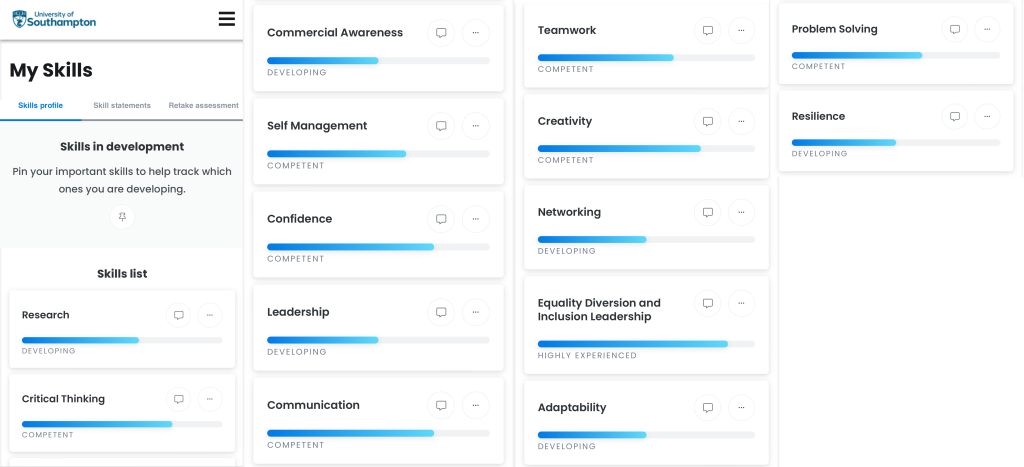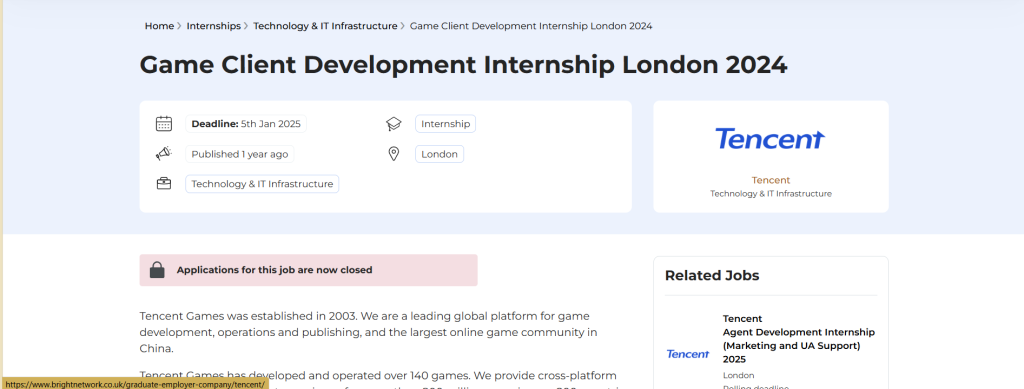This Thursday, we had a careers talk with Laia Auge Poch, a UoS Careers Consultant with over 20 years of experience, on the future of our careers in Game Design. Before I started, I had a look at what types of careers are available in games:
| Artistic Games Careers | Technical Games Careers |
| 3D Game Artist | Game Designer |
| 2D Game Artist | Games Programmer |
| Texture Artist | Games Journalist |
| Technical Games Careers | Games Producer |
| UX/UI Designer |
Where am I in my game planning career?

I feel like I am at the planning stage, here’s why:
- I have some ideas already (what games to make, what field to go into (Artist) and how to get the work experience (internships)
- I’m starting to hone my skills and work on my own projects, like continuing Oh, Rats!
“One of the most difficult tasks
humans can perform, however
much others may despise it, is
the invention of good games.”
G. Jung, a Swiss psychiatrist and
psychoanalyst
Skills Quiz
We utilised the MyPathways tool on the Southampton Careers app, where we took a quiz to identify our best skills, allowing us to look for jobs that reflect our skills.
Evaluation of the skills quiz: I thought the quiz was okay, but it didn’t feel very helpful in what I want to do in games. The skills seemed more oriented to analytics-based subjects, which Game Design only has a little bit of.

Case Study: Game Client Development Internship London 2024

We looked at this Case study of an internship from Tencent Games and analysed what skills we needed for the job. I highlighted all the skills identified.


Evaluation of the Case Study: It was interesting to look at and good for dissecting the amount of skills you need in Games Careers, but also not relevant to my ideal career. I think it’s still good to look at things you don’t particularly want to go into, to get a better sense of what you want to do.
Final Useful Tips
Here were some useful final tips that Laia gave us, and I expanded on each one as a reminder:
- itch.io, indie game jams
- Why? Helps expand your skillset, hone your profession and show you can work in a team (or solo).
- Github, Artstation, WordPress
- Why? Good for refining your portfolio.
- UKIE, TIGA, Women in Games
- Why? Being a part of games groups helps you create connections and get recognised within those spaces.
- Volunteer at Indie Events + Game Expos
- Why? The UK Games space is small, and the indie world is smaller. You can get the word out for your game here.
- LinkedIn, build your network
- Why? Connections will be your biggest strength in the industry. Building them can introduce you to great coworkers and friends within the space.
- WSA careers + opportunities website
- Why? Take the opportunities and resources that the school gives to further your career.